As much as the bell peppers are often considered veggies, bell peppers are in fact classified as a fruit. The colors yellow and orange fall under the middle between the green bell pepper which is the least matured and the red bell pepper which is the most matured. And orange bell pepper is consider among the colors of matured bell pepper.
Guinea pigs can eat orange peppers but it is important to regulate the serving size of the orange peppers that you feed to your guinea pig. Orange peppers are rich in vitamins, minerals, and antioxidants that are beneficial for guinea pig’s health. But due to sugar content in them, they need to be moderated.
Table of Content
Are Orange Peppers Good for Guinea Pigs? | Health Benefits
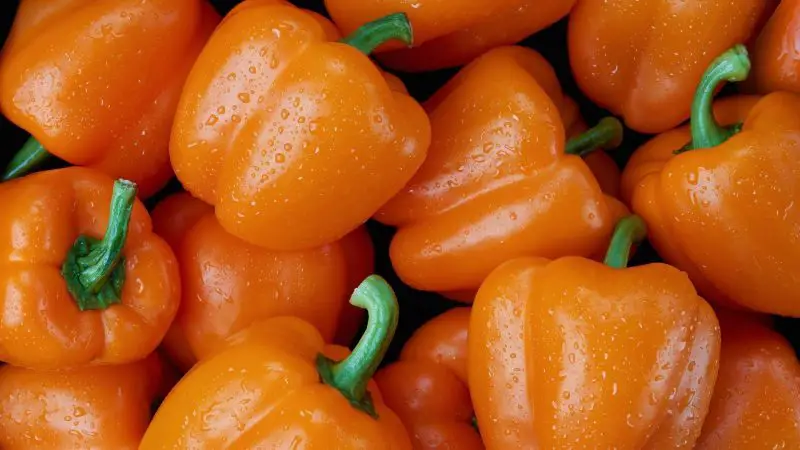
Orange peppers, just like the other bell peppers have several health benefits for guinea pigs. The following are some of these benefits:
- The presence of an iron mineral in orange peppers ensures that red blood cells can carry oxygen thus preventing anemia.
- The peppers have a sufficient amount of vitamin C which is vital for the iron absorption.
- Lutein can be found in orange peppers and plays a huge role when it comes to good eye health. Zeaxanthin is yet another vital compound that may improve your pet’s vision. Orange peppers also alleviate oxidative damage from the inner walls of the eye that often are very sensitive.
- Orange peppers have antioxidants that are ideal for countering the presence of free radicals in your pet. This will equally help with getting rid of some different diseases and infections that may jeopardize the health of your guinea pig.
- Orange peppers may have some considerable benefits when it comes to bone health. The vitamin K found in bell peppers is an ideal supplier of nutrients that help with the formation and development of strong bones and teeth for your guinea pig.
- Orange peppers are very rich in Vitamin C. Vitamin C is very important for guinea pigs because deficiency of this vitamin can cause a disease called scurvy.
Nutrition Facts of Orange Peppers for Guinea Pigs
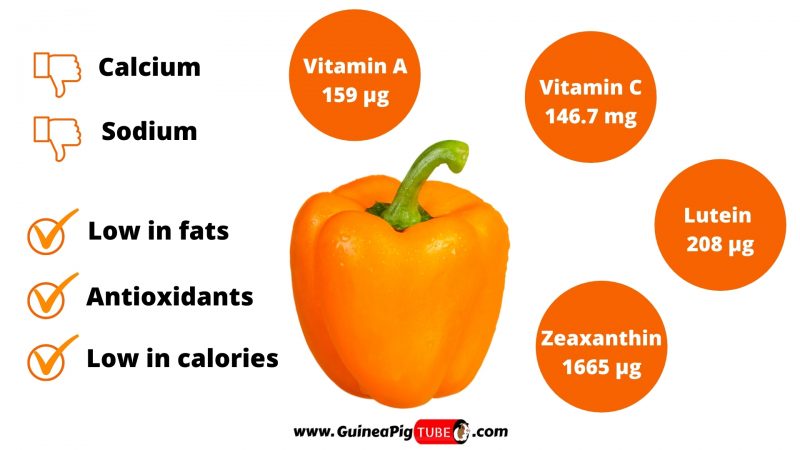
These are nutrition facts for 100 g of raw orange bell pepper:
- Energy – 31 kcal
- Protein – 1.2 g
- Total lipid (fat) – 0.2 g
- Carbs – 7 g
- Dietary Fiber – 1.7 g
- Sugars – 4.3 g
- Calcium – 7 mg
- Iron – 0.26 mg
- Potassium – 166.3 mg
- Sodium – 2 mg
- Vitamin C – 146.7 mg
- Vitamin A – 159 μg
- Lutein – 208 µg
- Zeaxanthin – 1665 µg
Are Orange Peppers Bad for Guinea Pigs? | Possible Risks
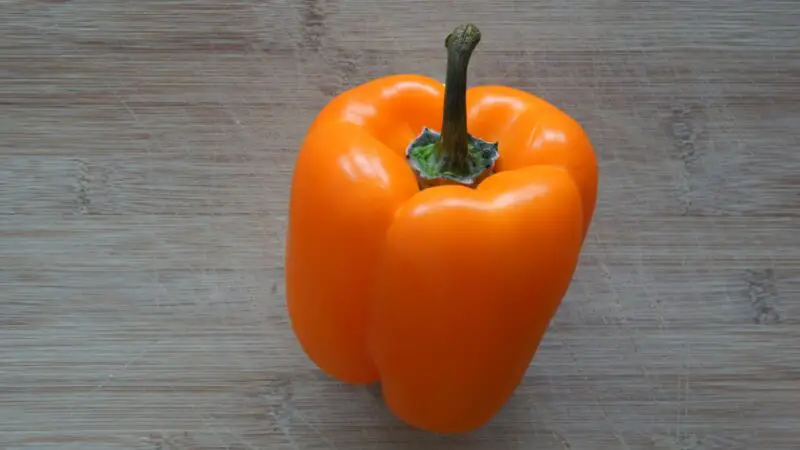
- Allergic reactions – Although rare, allergic reaction is a potential risk that may face your guinea pig if you’re unlucky. You may notice vomiting, diarrhea, and even stomach aches.
- Problems with digestion – Too much sugar isn’t good for your guinea pig and for this reason. You need to regulate the intake of orange peppers in guinea pig’s diet. Guinea pigs have a very sensitive digestive system. Excess sugar and fiber can cause serious stomach problems for them.
Serving Size and Frequency of Orange Bell Peppers for Guinea Pigs
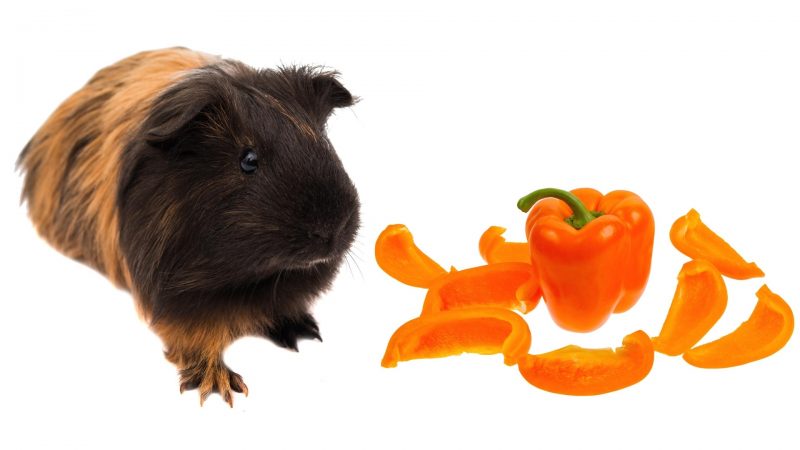
Can Guinea Pigs Have Orange Bell Peppers Every Day?
Guinea pigs shouldn’t eat orange peppers every day. It is recommended that you feed your guinea pigs with orange peppers only 2 or 3 times a week.
Although many owners feed their guinea pigs with orange peppers almost daily, we don’t recommend that. There are many other fruits and vegetables that you can give to your guinea pigs. Just like humans, guinea pigs shouldn’t eat the same food every day, except hay and water.
Can Guinea Pigs Eat a Whole Orange Pepper?
Guinea pigs shouldn’t eat a whole orange pepper even if your guinea pig really enjoys it. There are some risks with digestive problems if you give too many orange peppers to your guinea pigs.
Orange peppers are very tasty and crispy for guinea pigs and you should never put a whole orange pepper in their cage. Guinea pigs sometimes don’t know when to stop eating and overfeeding them can cause serious stomach problems.
So, the recommended serving size is one or two slices or half a cup of orange pepper for one guinea pig. Just be sure to wash orange pepper thoroughly with water before giving it to them.
More Information About Guinea Pigs and Orange Peppers
Can Guinea Pigs Eat Orange Bell Peppers Seeds?
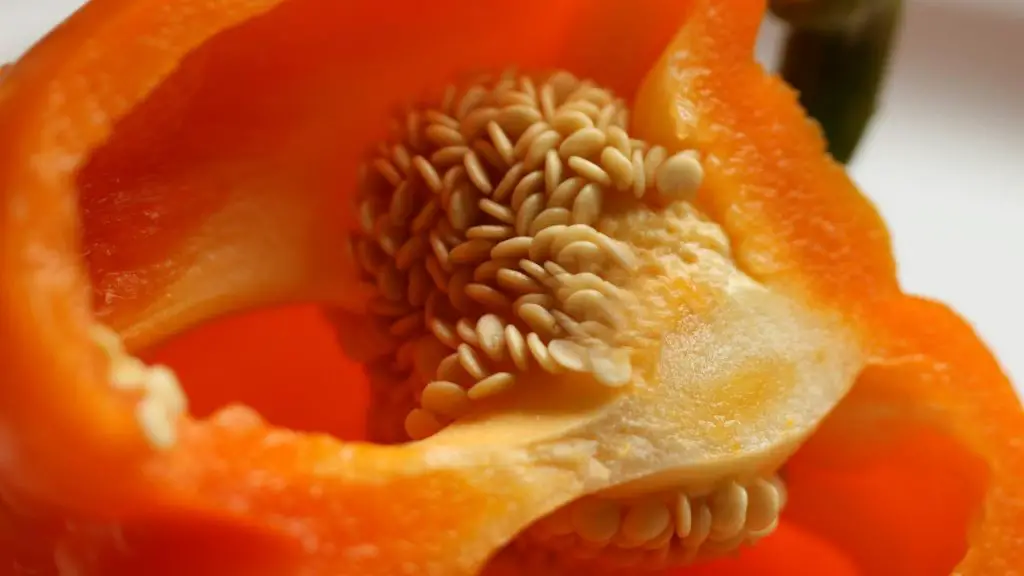
Many people think that the orange bell pepper seeds are toxic to guinea pigs, but that isn’t true. Guinea pigs can eat orange peppers seeds and they really aren’t poisonous to them. However, we do not recommend feeding orange bell pepper seeds to guinea pigs.
There is always a risk of a choking hazard, even though they are very soft and small. Also, orange pepper seeds can be bitter in taste. The safest way is to remove the seeds from an orange pepper and avoid any possibility of a choking hazard.
Can Guinea Pigs Eat Orange Peppers Stems?
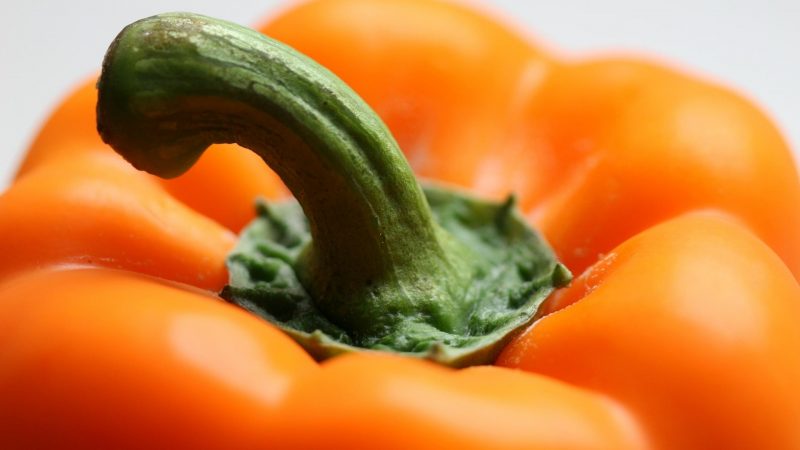
Guinea pigs can’t eat orange peppers stems because these stems contain alkaloids that can be toxic to guinea pigs. It’s recommended to remove orange pepper stem before giving them to guinea pigs.
So, guinea pigs shouldn’t eat any other part of the orange pepper such as stems, leaves, or seeds. They enjoy eating only the actual flash part of an orange pepper.
Quick Facts on Orange Peppers
The following are some facts about orange peppers that you may find interesting:
- The bell peppers can last for a long time if placed inside the freezer.
- China leads in the production of bell peppers and is closely followed by Turkey, Mexico, and Indonesia.
- Bell peppers are eaten either raw or cooked depending on preference.
- Even though bell peppers are not widely grown in the USA as compared to countries such as China, they are native to South and Central America.
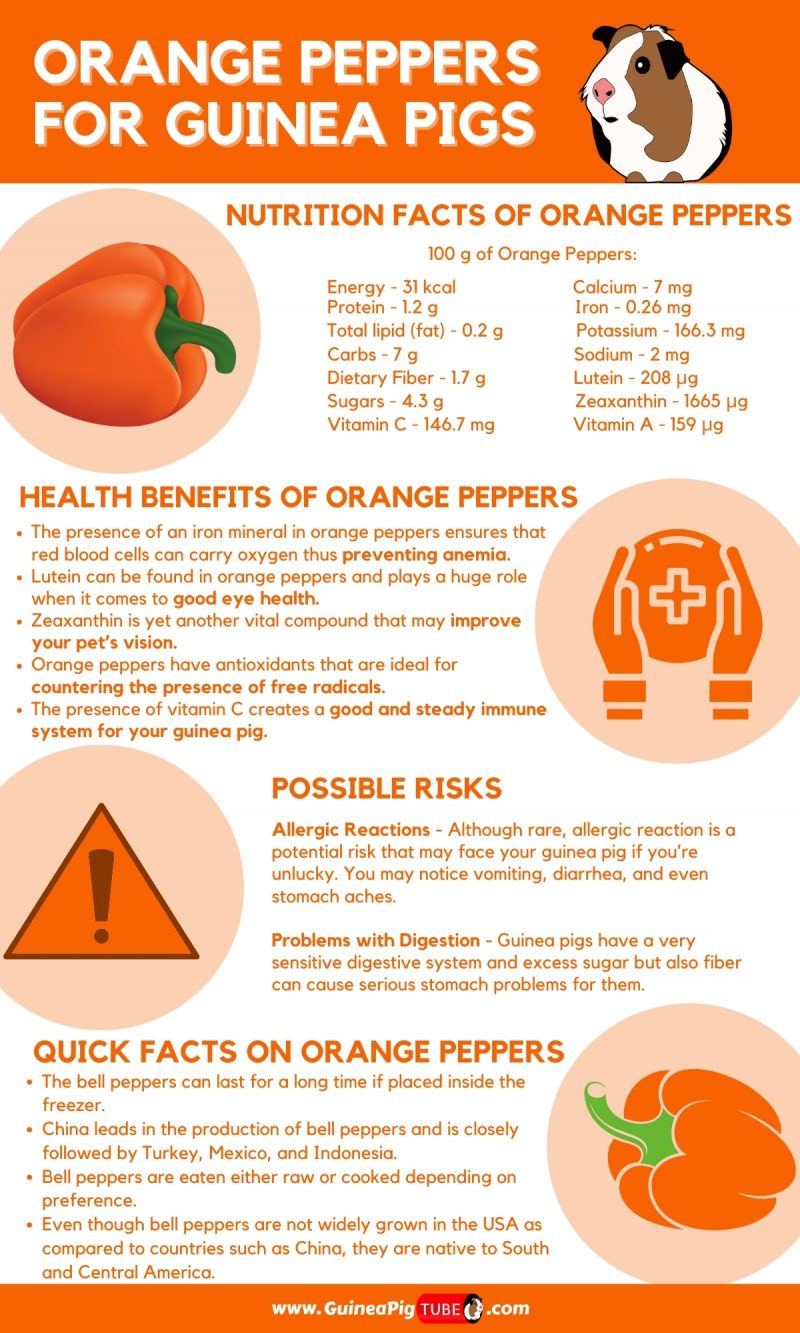
We have also made a full list of foods that guinea pigs can and can’t eat (150+ Types of Foods). Be sure to also check our recommended products page for everything you will ever need to assure a happy life for your guinea pigs. Hope this information was helpful and you have found the answer you were looking for.
List of Sources
Nutrient Requirements of Laboratory Animals: Fourth Revised Edition
Bioactive Compounds and Antioxidant Activity in Different Grafted Varieties of Bell Pepper
Variability of Carotenoid Biosynthesis in Orange Colored Capsicum spp
